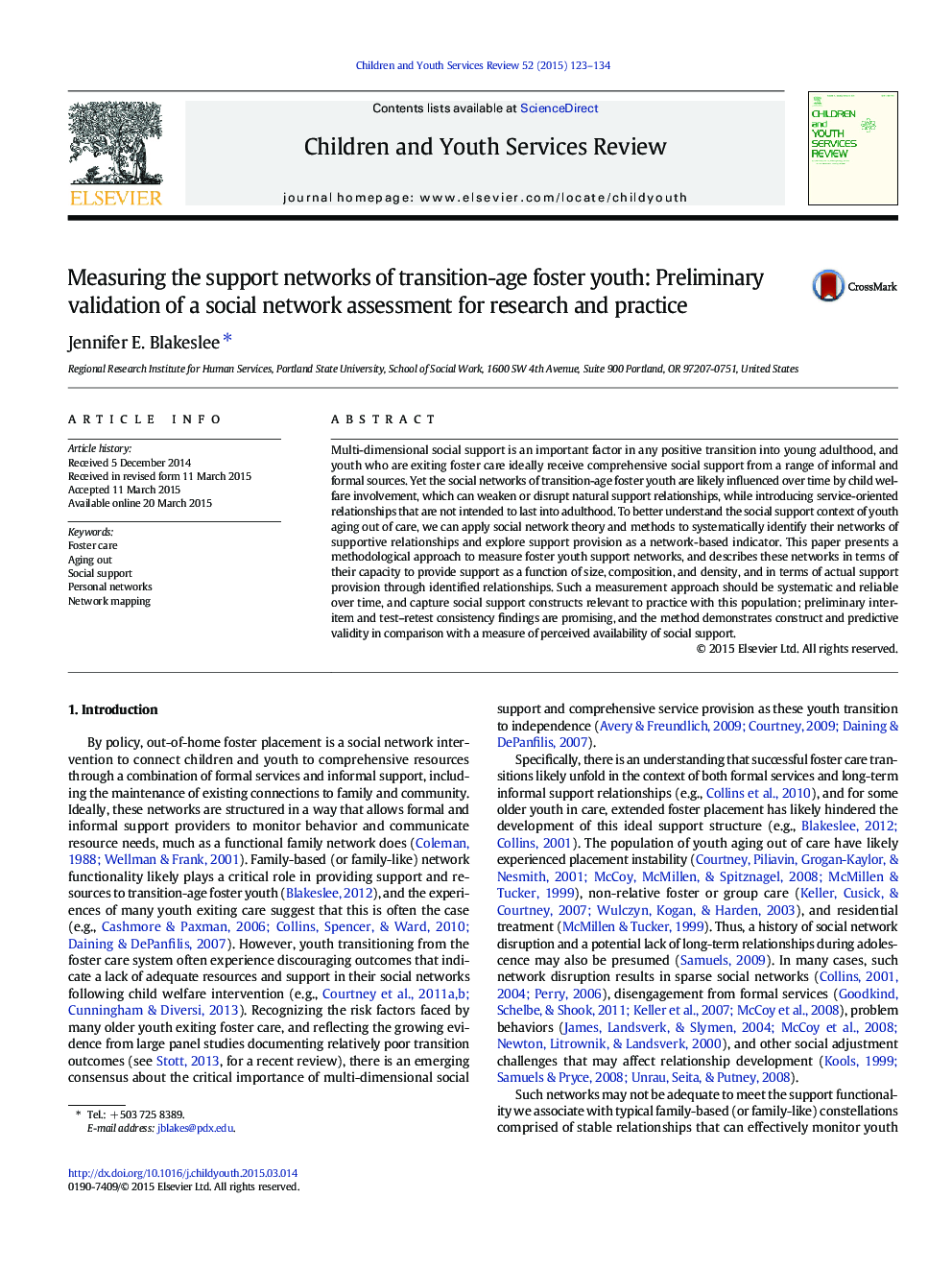| Article ID | Journal | Published Year | Pages | File Type |
|---|---|---|---|---|
| 346009 | Children and Youth Services Review | 2015 | 12 Pages |
•This paper presents a support network measurement approach for older foster youth.•Support networks are described for a sample of service-connected youth.•Reliability findings show consistent measurement over time on many indicators.•Validity findings show that this approach measures related social support constructs.•This measure of support better predicted post-secondary enrollment at follow-up.
Multi-dimensional social support is an important factor in any positive transition into young adulthood, and youth who are exiting foster care ideally receive comprehensive social support from a range of informal and formal sources. Yet the social networks of transition-age foster youth are likely influenced over time by child welfare involvement, which can weaken or disrupt natural support relationships, while introducing service-oriented relationships that are not intended to last into adulthood. To better understand the social support context of youth aging out of care, we can apply social network theory and methods to systematically identify their networks of supportive relationships and explore support provision as a network-based indicator. This paper presents a methodological approach to measure foster youth support networks, and describes these networks in terms of their capacity to provide support as a function of size, composition, and density, and in terms of actual support provision through identified relationships. Such a measurement approach should be systematic and reliable over time, and capture social support constructs relevant to practice with this population; preliminary inter-item and test–retest consistency findings are promising, and the method demonstrates construct and predictive validity in comparison with a measure of perceived availability of social support.
